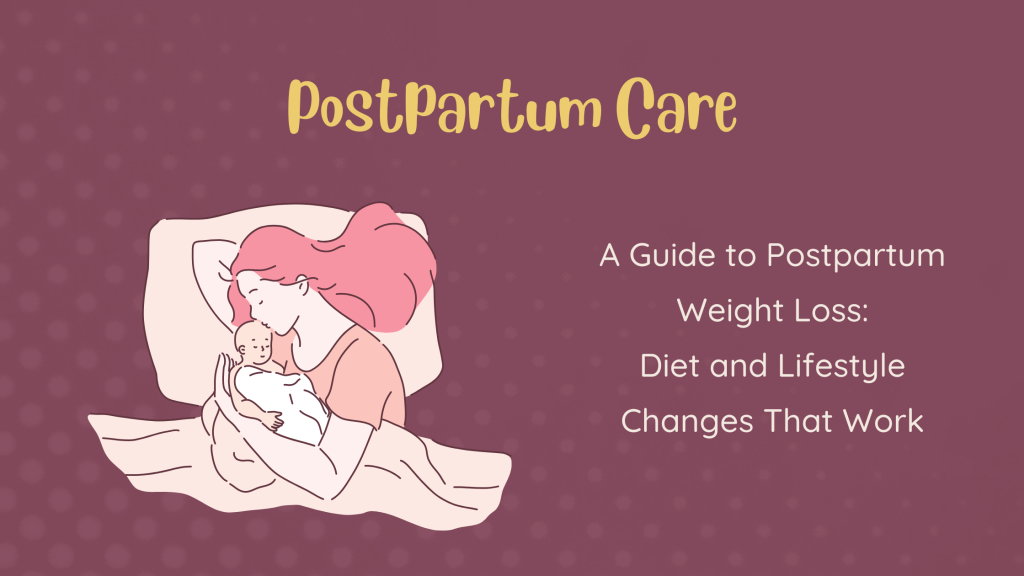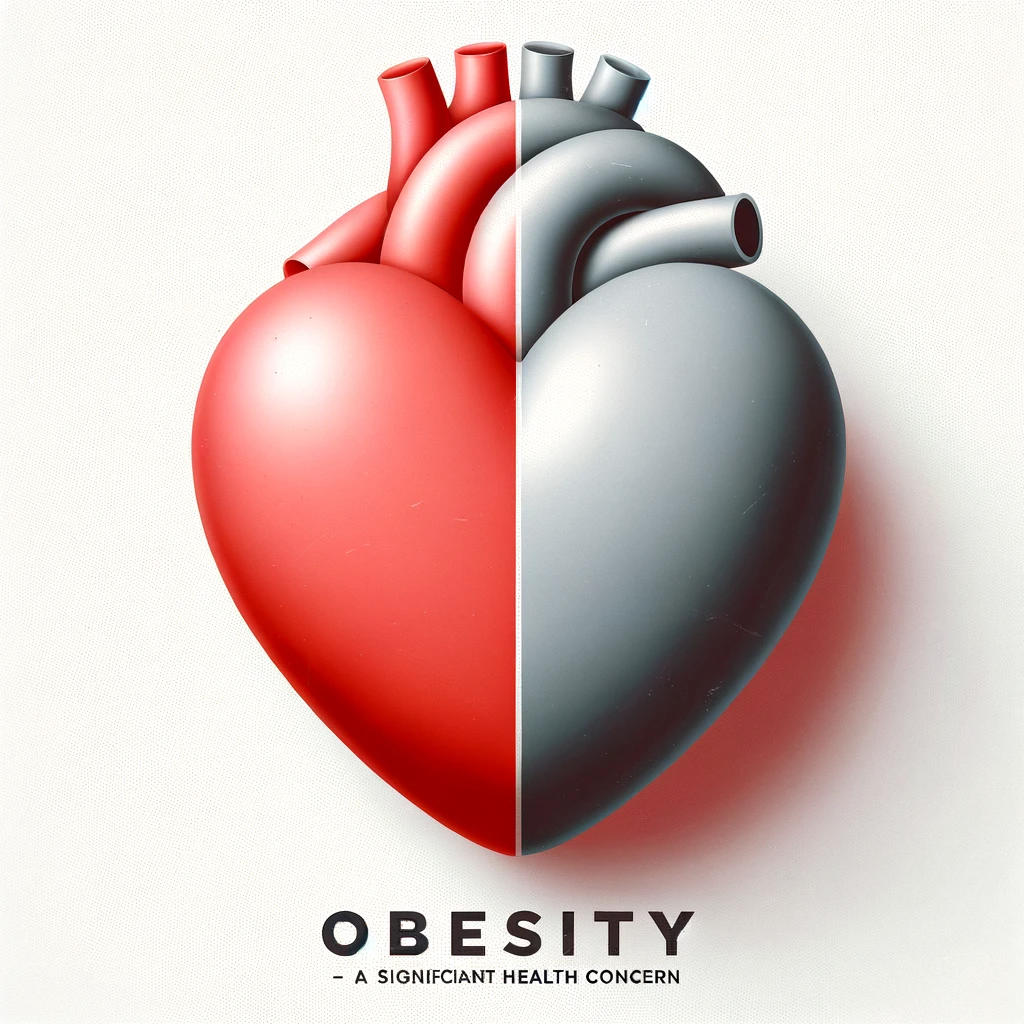A Guide to Postpartum Weight Loss: Diet and Lifestyle Changes That Work

Author:
Dr. Jenny Stanford, MD, FAAFP, DipABOM
Experienced Physician, Board-Certified in Obesity Medicine and Family Medicine
Weight gain during pregnancy
Pregnancy is a proinflammatory state that promotes weight gain, in order to sustain the growth of the unborn baby and to prepare for breastfeeding after delivery. Following pregnancy weight gain, postpartum weight loss is universally important to prevent complications. We know that after pregnancy, the focus often shifts entirely to caring for your baby. However, it’s equally important to take care of yourself during this time. Losing weight post pregnancy has profound impacts on mental and physical wellbeing. There are many strategies and considerations effective for postpartum weight loss, but it is important to remember that adopting a personalized, holistic approach has the highest likelihood of success. Let’s consider the hormonal changes involved, how to make dietary changes, and how to apply lifestyle modifications. In another article titled The Role of GLP-1 Receptor Agonists in Postpartum Weight Loss, we discuss the potential role of medications in reaching optimal postpartum weight loss.
Why weight loss important is important after childbirth?
Studies show that losing weight after childbirth is imperative to restore overall physical and mental wellbeing. Retaining excess body weight increases the risk of overweight and obesity long-term, which predispose to coronary artery disease(heart disease), type 2 diabetes(elevated blood sugar levels), metabolic syndrome, and others. The risk is especially higher in people who have family history of these conditions or who had gestational diabetes. Studies suggest that postpartum weight retention is associated with an increased risk of obesity as soon as one year and elevated cardiovascular disease risk within five years after delivery. For many people, the postpartum period is the preconception period for the next pregnancy, so poor metabolic health postpartum can lead to negative pregnancy outcomes, like gestational diabetes, gestational hypertension, and more.
What happens postpartum?
Hormone changes
The hormone changes that occur postpartum are the largest hormone fluctuations that occur in the life cycle in the shortest amount of time. Estrogen and progesterone levels drop dramatically, Prolactin levels soar to support breastfeeding. These hormone fluctuations significantly impact metabolism and weight regulation. Thyroid hormones closely regulate metabolism, and thyroid hormone imbalances can occur postpartum, which can have profound effects on weight.
Mental status changes
The substantial hormone shifts postpartum can predispose to postpartum depression, anxiety, and psychosis. Not losing weight postpartum also makes these mental health conditions more likely.
How to lose weight postpartum
Diet approaches
Dietary changes are the cornerstone of postpartum weight loss. However, nutrition needs vary widely, whether or not patients are lactating. While calorie control is important, optimal macronutrient composition can make weight loss more successful. Following a personalized approach to diet postpartum allows for the most weight loss success.
High Protein, Lower Carbohydrate Diets
Pregnancy induces a state of insulin resistance, which gradually improves to pre-pregnancy status after delivery. This helps explain why following a high-protein diet temporarily postpartum helps promote postpartum weight loss. A high-protein, lower carbohydrate diet usually includes 30-40% of calories from protein, about 40% of calories from carbohydrates, and about 20-30% of calories from healthy fats. This macronutrient ratio enhances insulin sensitivity and increases the release of weight-loss-promoting neuroendocrine hormones like glucagon-like peptide-1, glucose-dependent insulinotropic peptide, somatostatin, and others.
Not only do higher-protein, lower carbohydrate diets lead to weight loss but also improve body composition by maintaining lean body mass. Protein helps increase metabolism in several ways. It requires more energy to metabolize (referred to as the thermic effect of food), and it helps maintain lean body mass, which burns more calories at rest. Protein increases fullness, helping to reduce overall calorie intake, which leads to weight loss.
When you follow a high protein diet, prioritize not only the quantity of protein but also the quality. Focus on lean meats, fish and seafood, nuts, and plant-based proteins, which provide not only lean protein but also healthy fats. Be sure to include complex carbohydrate sources that are rich in fiber and polyphenols, including fruits, vegetables, whole grains, and legumes, which are dense with nutrients your body needs.
Mediterranean Diet
The Mediterranean diet has been shown to have many health benefits, including weight loss and improved insulin sensitivity by increasing levels of the neuroendocrine hormones glucagon-like peptide-1 (GLP-1) and oxyntomodulin. Studies suggest the Mediterranean diet effectively promotes weight loss postpartum. The Mediterranean diet focuses on whole, real foods, prioritizing fruits, vegetables, whole grains, fish, seafood, nuts, seeds, and extra virgin olive oil. It recommends minimal intake of added sugars, processed foods, and red meat. Be sure to monitor total calorie intake while following the Mediterranean diet, as many foods like nuts, seeds, and olive oil tend to be higher in calories.
Intermittent Fasting and Time-Restricted Feeding
Fasting within intermittent fasting and time-restricted feeding strategies has demonstrated positive effects of increasing metabolism, controlling insulin release, and regulating other anorexigenic neuroendocrine hormones like GLP-1 and oxyntomodulin. Further evidence is needed regarding their impacts in the postpartum period, but they appear to have promising benefits for weight loss.
Breastfeeding
Breastfeeding uses significant energy, and it has been shown to promote postpartum weight loss. Many nutrient and fat stores are maintained during lactation to ensure adequate nutrition for breast milk, and the amount of weight loss during breastfeeding varies between individuals. Lactation significantly impacts nutrient requirements, so be sure to consult with a knowledgeable healthcare professional for advice on the best diet to promote postpartum weight loss while supporting lactation.
Lifestyle modifications
In addition to diet, lifestyle modifications have a significant impact on postpartum weight loss. Diet modifications plus regular physical activity have been shown to be more effective in promoting postpartum weight loss than physical activity alone.
Incorporate Physical Exercise
To incorporate physical exercise postpartum, be sure to obtain the go-ahead from your physician or postpartum physical therapist. Then, follow a graduated return to physical activity based on your exercise tolerance. Start with low-impact activities, like walking, swimming, and core-focused strength training exercises. Gradually increase time and intensity of exercise, with the goal of at least 150 minutes of moderate-intensity exercise per week.
Get Adequate Sleep
In the postpartum period, sleep can be elusive. From significant hormone shifts to the needs of a newborn baby, it is difficult to prioritize adequate sleep. Adequate time and quality of sleep has profound impacts on hormone levels, hunger, and metabolism. Not enough sleep increases concentrations of ghrelin, an appetite-stimulating hormone that promotes weight gain. Inadequate sleep also promotes insulin resistance, which is a significant focus in postpartum weight loss already. Poor sleep makes postpartum weight loss harder to achieve. Aim for 7-9 hours of sleep each night. Because this sleep will likely be interrupted, try to take short naps during the day. If you have help at home, try to delegate some of the nighttime newborn care responsibilities if possible.
Manage Stress
Managing stress in the postpartum period is important for postpartum weight loss. Chronic stress can cause weight gain and make it harder to lose weight. Find healthy ways to manage stress, like deep breathing exercises, mindfulness, meditation and prayer, enjoyable hobbies, and spending time with family and friends.
Highlights
When it comes to postpartum weight loss, it is essential to understand physical and hormone changes that occur in the pregnancy and postpartum periods. Taking these into consideration, you can apply effective diet and lifestyle strategies to promote healthy postpartum weight loss and avoid long-term health consequences associated with overweight and obesity. Applying personalized, holistic approaches to a postpartum diet provides the most successful long-term weight loss.
Have more questions?
Schedule a complimentary telemedicine visit with a board-certified medical doctor. During your visit, you will receive a comprehensive medical evaluation, an assessment of your suitability for weight loss treatment, verification of your insurance coverage for the medication, and personalized answers to all your questions. Schedule your appointment today!
– No Credit Card Required. Sign up only if you see value.
References
- Alexander EK, Pearce EN, Brent GA, et al. 2017 Guidelines of the American Thyroid Association for the Diagnosis and Management of Thyroid Disease During Pregnancy and the Postpartum. Thyroid. 2017;27(3):315-389. https://pubmed.ncbi.nlm.nih.gov/28056690/
- Aroda VR. A review of GLP-1 receptor agonists: Evolution and advancement, through the lens of randomised controlled trials. Diabetes Obes Metab. 2018;20 Suppl 1:22-33. https://pubmed.ncbi.nlm.nih.gov/29364586/
- Carretero-Krug A, Montero-Bravo A, Morais-Moreno C, et al. Nutritional Status of Breastfeeding Mothers and Impact of Diet and Dietary Supplementation: A Narrative Review. Nutrients. 2024;16(2):301. https://pubmed.ncbi.nlm.nih.gov/38276540/
- Di Mauro A, Tuccinardi D, Watanabe M, et al. The Mediterranean diet increases glucagon-like peptide 1 and oxyntomodulin compared with a vegetarian diet in patients with type 2 diabetes: A randomized controlled cross-over trial. Diabetes Metab Res Rev. 2021;37(6):e3406. https://pubmed.ncbi.nlm.nih.gov/32926502/
- Dodd JM, Deussen AR, O’Brien CM, et al. Targeting the postpartum period to promote weight loss: a systematic review and meta-analysis. Nutr Rev. 2018;76(8):639-654. https://pubmed.ncbi.nlm.nih.gov/37752466/
- Edwards SM, Cunningham SA, Dunlop AL, Corwin EJ. The Maternal Gut Microbiome During Pregnancy. MCN Am J Matern Child Nurs. 2017;42(6):310-317 https://www.ncbi.nlm.nih.gov/pmc/articles/PMC5648614/
- Endres LK, Straub H, McKinney C, et al. Postpartum weight retention risk factors and relationship to obesity at 1 year. Obstet Gynecol. 2015;125(1):144-152. https://www.ncbi.nlm.nih.gov/pmc/articles/PMC4286308/#:~:text=Postpartum%20weight%20retention%20is%20a,behaviors%20may%20lower%20the%20risk. Groth SW, Fernandez ID, Block RC, et al. Biological changes in the pregnancy-postpartum period and subsequent cardiometabolic risk-UPSIDE MOMS: A research protocol. Res Nurs Health. 2021;44(4):608-619. https://pubmed.ncbi.nlm.nih.gov/33993510/
- Guasch-Ferré M, Willett WC. The Mediterranean diet and health: a comprehensive overview. J Intern Med. 2021;290(3):549-566. https://pubmed.ncbi.nlm.nih.gov/34423871/
- Guo Y, Kehoe P, Pimentel P, et al. Exercise and Stress in At-Risk Women during Pregnancy and Postpartum. MCN Am J Matern Child Nurs. 2021;46(4):217-222. https://pubmed.ncbi.nlm.nih.gov/34166239/
- Hartley E, Hill B, Bailey C, Fuller-Tyszkiewicz M, Skouteris H. The Associations of Weight Status and Body Attitudes with Depressive and Anxiety Symptoms Across the First Year Postpartum. Womens Health Issues. 2018;28(6):530-538. https://pubmed.ncbi.nlm.nih.gov/30139521/
- Huber H, Schieren A, Holst JJ, Simon MC. Dietary impact on fasting and stimulated GLP-1 secretion in different metabolic conditions – a narrative review. Am J Clin Nutr. 2024;119(3):599-627. https://pubmed.ncbi.nlm.nih.gov/38218319/
- Huseinovic E, Bertz F, Leu Agelii M, Hellebö Johansson E, Winkvist A, Brekke HK. Effectiveness of a weight loss intervention in postpartum women: results from a randomized controlled trial in primary health care. Am J Clin Nutr. 2016;104(2):362-370. https://pubmed.ncbi.nlm.nih.gov/27413127/
- Ibrahim Abdalla MM. Ghrelin – Physiological Functions and Regulation. Eur Endocrinol. 2015;11(2):90-95. https://pubmed.ncbi.nlm.nih.gov/29632576/
- Kramer CK, Ye C, Hanley AJ, et al. Postpartum weight retention and the early evolution of cardiovascular risk over the first 5 years after pregnancy. Cardiovasc Diabetol. 2024;23(1):101. https://pubmed.ncbi.nlm.nih.gov/38500162/
- Lambrinou CP, Karaglani E, Manios Y. Breastfeeding and postpartum weight loss. Curr Opin Clin Nutr Metab Care. 2019;22(6):413-417. https://pubmed.ncbi.nlm.nih.gov/31577639/
- Lim S, O’Reilly S, Behrens H, Skinner T, Ellis I, Dunbar JA. Effective strategies for weight loss in post-partum women: a systematic review and meta-analysis. Obes Rev. 2015;16(11):972-987. https://pubmed.ncbi.nlm.nih.gov/26313354/
- Moon J, Koh G. Clinical Evidence and Mechanisms of High-Protein Diet-Induced Weight Loss. J Obes Metab Syndr. 2020;29(3):166-173. https://pubmed.ncbi.nlm.nih.gov/32699189/
- Morales FE Ms, Tinsley GM, Gordon PM. Acute and Long-Term Impact of High-Protein Diets on Endocrine and Metabolic Function, Body Composition, and Exercise-Induced Adaptations. J Am Coll Nutr. 2017;36(4):295-305. https://pubmed.ncbi.nlm.nih.gov/28443785/
- Nartea R, Mitoiu BI, Nica AS. Correlation between Pregnancy Related Weight Gain, Postpartum Weight loss and Obesity: a Prospective Study. J Med Life. 2019;12(2):178-183. https://pubmed.ncbi.nlm.nih.gov/31406521/
- Øhman EA, Fossli M, Ottestad I, et al. Dietary treatment postpartum in women with obesity reduces weight and prevents weight gain: a randomised controlled trial. BMC Pregnancy Childbirth. 2023;23(1):695. https://pubmed.ncbi.nlm.nih.gov/37752466/
- Peng CC, Pearce EN. An update on thyroid disorders in the postpartum period. J Endocrinol Invest. 2022;45(8):1497-1506. https://pubmed.ncbi.nlm.nih.gov/35181848/
- Puddu PE, Menotti A. Simple versus complex carbohydrates and health: A frequently neglected problem. Nutr Metab Cardiovasc Dis. 2021;31(7):1949-1952. https://pubmed.ncbi.nlm.nih.gov/33992508/
- Ryan JT, Day H, Egger MJ, Wu J, Depner CM, Shaw JM. Night-time sleep duration and postpartum weight retention in primiparous women. Sleep Adv. 2023;5(1):zpad056. https://pubmed.ncbi.nlm.nih.gov/38314118/
- Schiller CE, Meltzer-Brody S, Rubinow DR. The role of reproductive hormones in postpartum depression. CNS Spectr. 2015;20(1):48-59. https://pubmed.ncbi.nlm.nih.gov/25263255/
- Stendell-Hollis NR, Thompson PA, West JL, Wertheim BC, Thomson CA. A comparison of Mediterranean-style and MyPyramid diets on weight loss and inflammatory biomarkers in postpartum breastfeeding women. J Womens Health (Larchmt). 2013;22(1):48-57. https://pubmed.ncbi.nlm.nih.gov/23276189/
- van der Pligt P, Willcox J, Hesketh KD, et al. Systematic review of lifestyle interventions to limit postpartum weight retention: implications for future opportunities to prevent maternal overweight and obesity following childbirth. Obes Rev. 2013;14(10):792-805. https://pubmed.ncbi.nlm.nih.gov/23773448/#:~:text=Postpartum%20weight%20retention%20can%20predict,maternal%20and%20foetal%20pregnancy%20outcomes.





